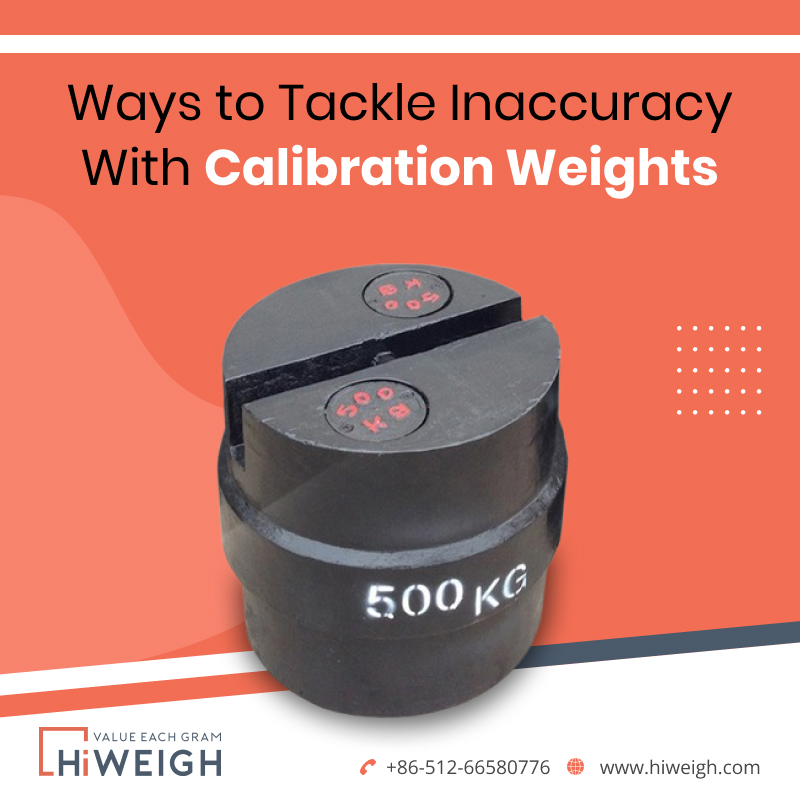In the fast-moving business world, accuracy is very important. In various tasks, like making products or doing experiments in labs, precise measurements are crucial to maintaining quality and effectiveness while meeting standards set by sectors of industry. Incorrect weight information can present substantial difficulties for businesses in many ways: mistakes that cost money; products that are not up to standard; and problems with following rules from authorities. Fortunately, investing in calibration weights offers a reliable solution to tackle this problem head-on.



Ensuring Precision Through Calibration Weights
Weights for calibration are very precise tools that confirm and fix the correctness of weighing scales as well as balances. They come in different shapes, sizes, and materials, but all of them are made with great care to match tight tolerance standards, ensuring their trustworthiness and precision. Calibration weights help make sure businesses’ weighing equipment gives reliable and exact measurements consistently, reducing chances for mistakes or differences.
Compliance and Quality Standards
Better Precision and Consistency
Calibration weights can help make weight measurements more accurate and reliable. Scales and balances, with the passing of time, may become imprecise due to various reasons like usage, surrounding conditions, or incorrect management. This issue is called “drift” because it causes a shift in calibration values over time. When weighing instruments are not properly calibrated, they might give incorrect results, which could lead to unreliable figures about weight. This could result in financial losses for businesses that depend on precise measurements for their operations.
Standrd References
Calibration weights are standard references that can be used to check the accuracy of weighing instruments. By comparing the readings from a scale or balance against known masses provided by calibration weights, users can confirm if their weighing system is functioning correctly. Another benefit of investing in calibration weights is saving money over time by reducing errors caused by drift or wear in weighing instruments.
Calibrate Regularly
Regularly calibrating scales and balances using proper reference weights helps maintain the accuracy of these devices. Moreover, owning your own set of calibration weights allows you to calibrate your precision instruments at any required moment without depending on external services. This flexibility saves both time and potential expenses related to frequent third-party calibration services. By having access to an assortment of different masses within a complete set of calibration weights, users can adjust their precision instruments, covering a wide range of capacities.
In this way, they make sure that all kinds of equipment used for measurement are correctly calibrated according to necessary standards.
Cost savings and operational efficiency
Additionally, calibration weights are necessary to meet regulatory demands and maintain quality levels. Various sectors, like pharmaceuticals, food and beverages, and aerospace, have stringent rules on the precision of weight measurements. Failure to follow these can lead to penalties, recalls of products, or even harm a company’s image. Businesses can show their dedication to quality and following regulations by getting calibration weights and setting up a strong calibration program. This will help them prevent expensive penalties while keeping customer trust intact.
Versatility and adaptability across industries
Moreover, calibration weights help in saving money and making operations more effective by preventing redoing work and waste due to imprecise measuring. In sectors where accuracy is very important, like making medicine or doing chemical studies, even small changes in weight details can lead to big problems with the quality of the product or its safety for use. If weighing tools are not correctly adjusted using precise calibration weights, it might result in mistakes and variations that can affect the result of production processes and cause a decrease in efficiency and unnecessary costs for the business.
Safeguarding Data Integrity with Calibration Programmes
In addition, calibration weights have flexibility and suitability to fit various requirements in different sectors. Be it confirming the precision of laboratory balances, industrial scales, or retail weighing machines, there are calibration weights to match every demand. Starting from normal weights that are stainless steel or brass-made, you can also find special weights for unique applications like magnetic or density testing. This means businesses can select appropriate calibration weights for their specific needs and tastes.
Using a calibration programme that includes precision calibration weights is not just about making sure weighing equipment stays precise and dependable. It also helps in keeping the authenticity of measurement data intact. In the present business world, accurate and reliable information is very important to make good choices, manage processes properly, and push for continual growth. By buying calibration weights and following recommended methods for calibrating and maintaining them, businesses can protect the authenticity of their data so as to make sure their operations succeed.
Final Thoughts
To sum up, the wrong weight data has large effects on businesses. It can lead to issues like bad product quality and not following rules set by regulators. But with the use of calibration weights and a strong calibration system, businesses can face this problem directly and get many advantages. From better precision and uniformity in measurements to saving money and meeting regulations, calibration weights are important for maintaining the truthfulness and trustworthiness of weight data in different industries and uses. In the fast-growing and competitive business world, calibration weights always provide a dependable solution to fulfil measurement requirements. It supports companies in achieving their goals and ensures precise results, which are crucial for making informed decisions.
